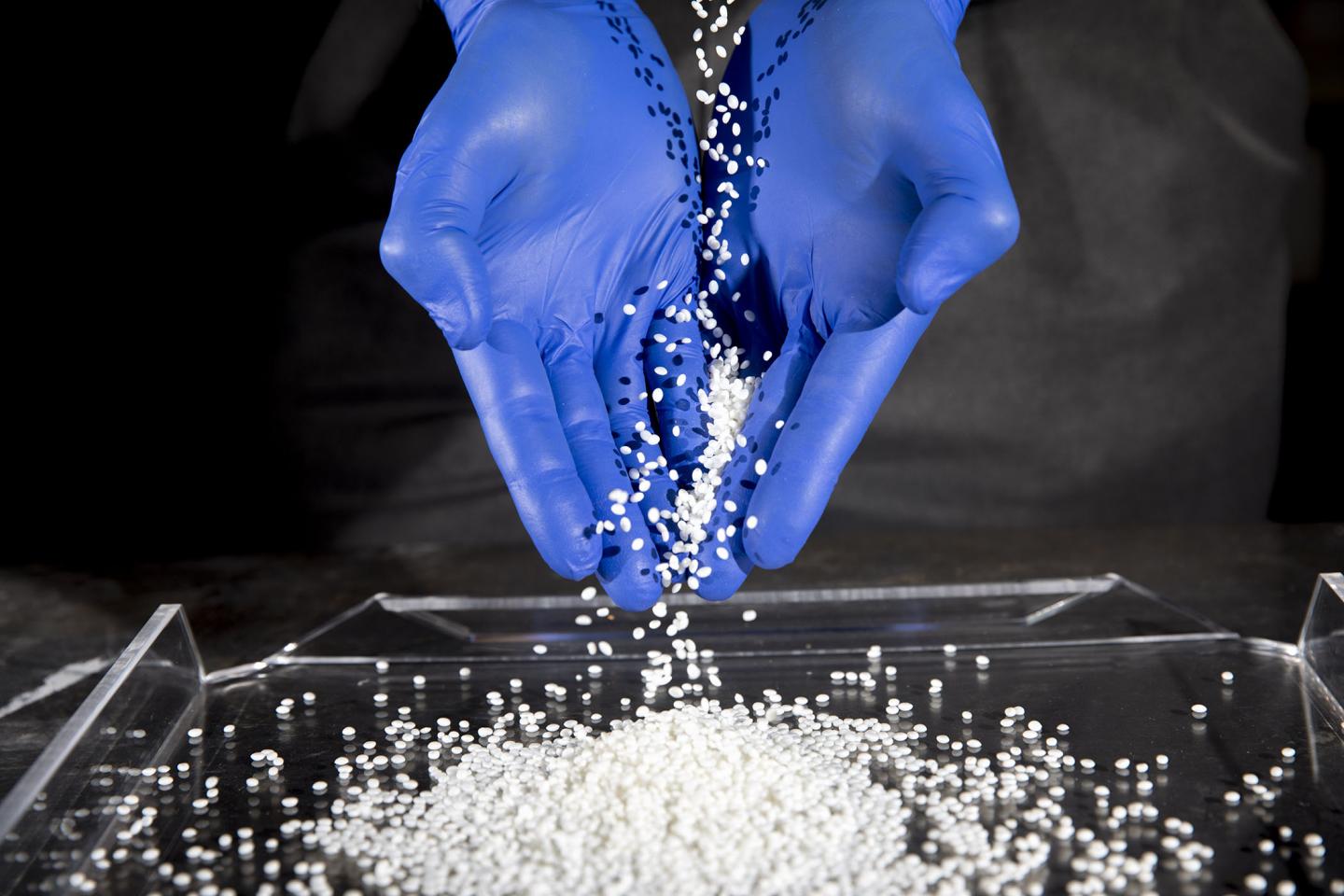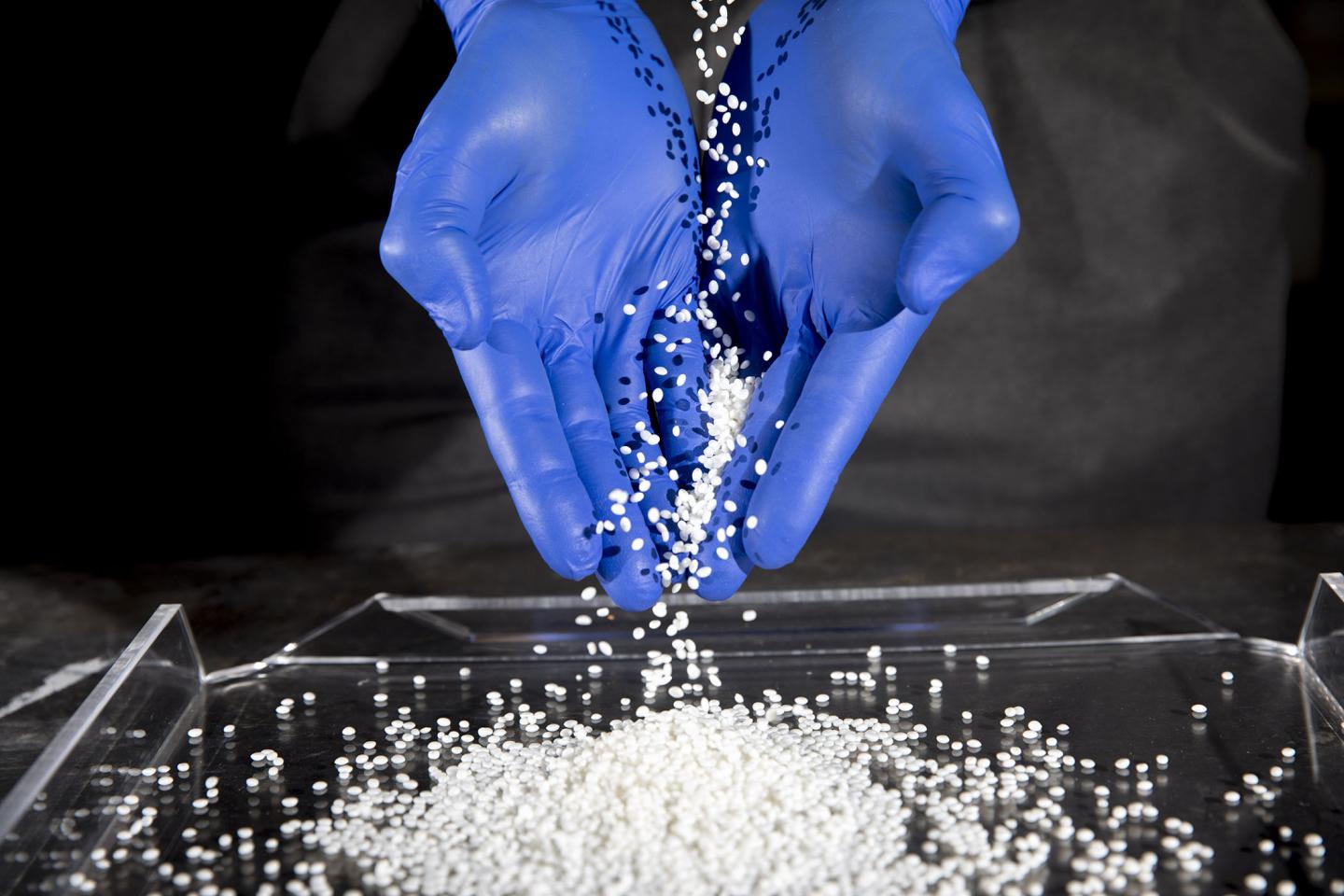
A research team that includes partners from the University of Georgia New Materials Institute and the RWDC Environmental Stewardship Foundation will develop a fully biodegradable plastic straw thanks to an award from Singapore’s Temasek Foundation Ecosperity.
The $719,000 award represents the top prize in Ecosperity’s inaugural Liveability Challenge and was presented to RWDC Industries in July in Singapore. UGA researchers, graduate students and a UGA alumnus, working with RWDC Foundation funding, synthesized a food contact polymer that they will now attempt to develop into a commercially viable straw, which RWDC would then bring to market.
The next step is for RWDC and the New Materials Institute to create prototypes. Then they must prove the straws can be manufactured consistently, produced at a scale to meet global demand and are fully biodegradable in soil, fresh water and marine water. Testing largely will be conducted in a New Materials Institute laboratory built with RWDC grant funding.
Few non-plastic alternatives
Currently, there are few non-plastic straw alternatives available to consumers. Many plastics branded as “biodegradable” are made from plant-based material called polylactic acid, or PLA. PLA-based plastics are compostable in limited environments, but they do not fully degrade outside of these settings.
“Plastics made from PLA only degrade in industrial compostable settings under high temperature and humidity conditions,” said Jason Locklin, director of the New Materials Institute and a professor in the Franklin College of Arts and Sciences department of chemistry, and the College of Engineering, who worked on the project. “Other types of plastic, which are petroleum-based, last forever. Less than 10 percent of these plastics are recycled. The 90 percent that aren’t recycled will ultimately fragment over time, and as micronized plastic, can end up in our soil, rivers and oceans–forever.”
The team’s biodegradable straws are based on a proprietary, bio-based resin in the class of polymers called polyhydroxyalkanoates, or PHAs.
Effective environmentally-friendly straws
For the PHA-straw to be a viable product in the marketplace, it will have to perform as well as the plastic straws currently in use. It must also be cost-effective over its entire life cycle, including disposal, said Branson Ritchie, director of technology development and implementation for the New Materials Institute, and a distinguished research professor at UGA.
“The PHA-straw is an initial step toward our shared goal, with RWDC, of replacing single-use, petroleum-based plastics with plastics made from our biodegradable resins,” Ritchie said. “We can tweak our formulas and expand our technology on a product-by-product basis. This keeps a manufacturer’s costs down because they don’t have to reinvent their processes, and this facilitates their ability to quickly produce environmentally-friendly plastic products.”
Partnership
RWDC provided a substantial grant in order to quickly boost the New Materials Institute’s capabilities and position it for fast-tracking development, testing and illustration of the scalability necessary to create products from the bio-based resins we have co-developed, said Daniel Carraway, a scientist, inventor and entrepreneur who co-leads RWDC Industries and its foundation. Carraway earned his doctorate in forest biotechnology from UGA in 1996.
“We have positioned the New Materials Institute to succeed in the critical step of translating these technologies beyond the laboratory scale,” Carraway said. “This straw will be the first of our fruits from these endeavors and the first product from what we view as a long-term partnership.”
###
The UGA New Materials Institute is committed to preventing waste through the design of materials and systems that adhere to Green Engineering principles. The Institute partners with industry and businesses to design materials for their use that are bio-based, fully biodegradable, or completely recyclable, and safe for people, animals and our planet. In addition, it works with businesses, governments, foundations and other organizations to redesign systems so that they generate less waste and promote circularity in materials management. The New Materials Institute is also shaping the future by training the next generation of scientists and engineers on the importance of considering Green Engineering design principles in everything they do. For more information, visit http://www.newmaterials.uga.edu.
Media Contact
Kat Yancey Gilmore
[email protected]
706-542-6316
@universityofga
http://www.uga.edu





